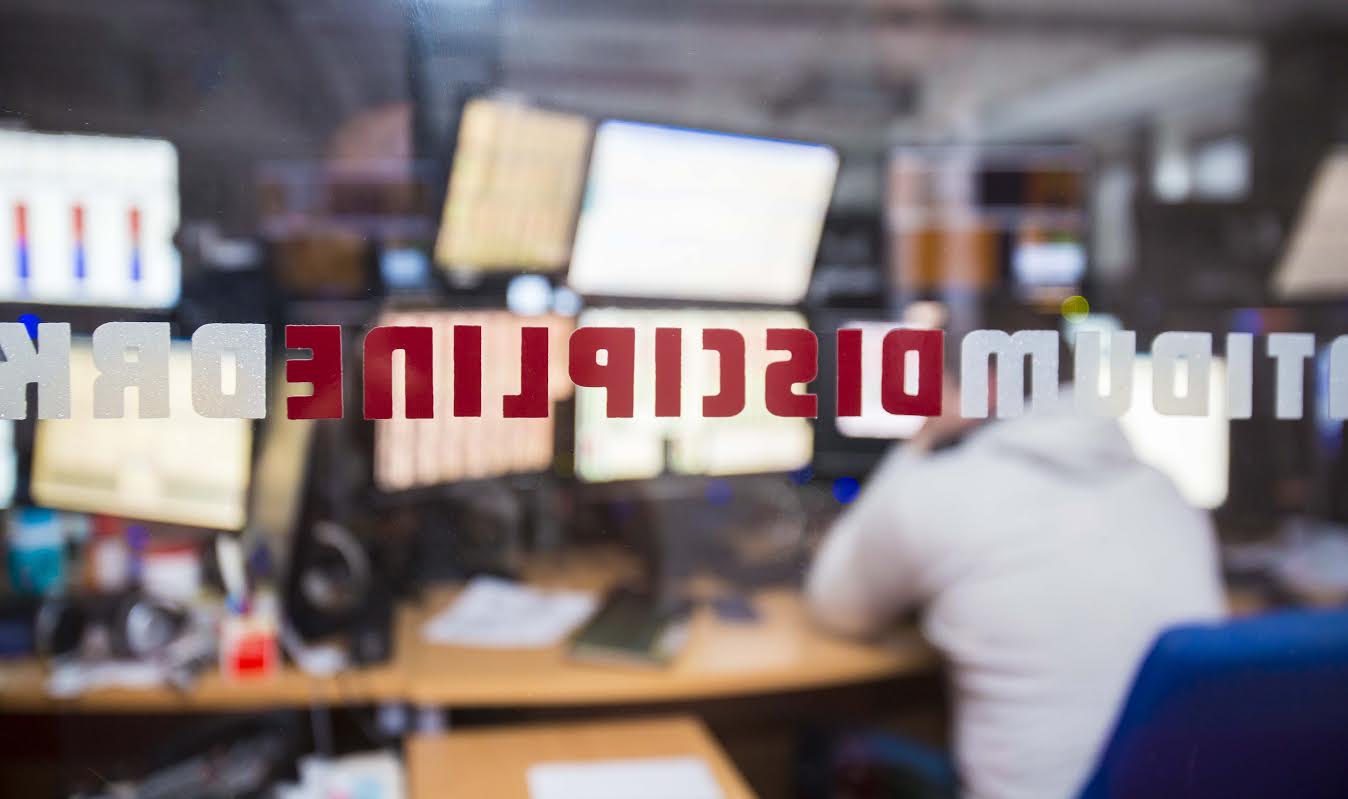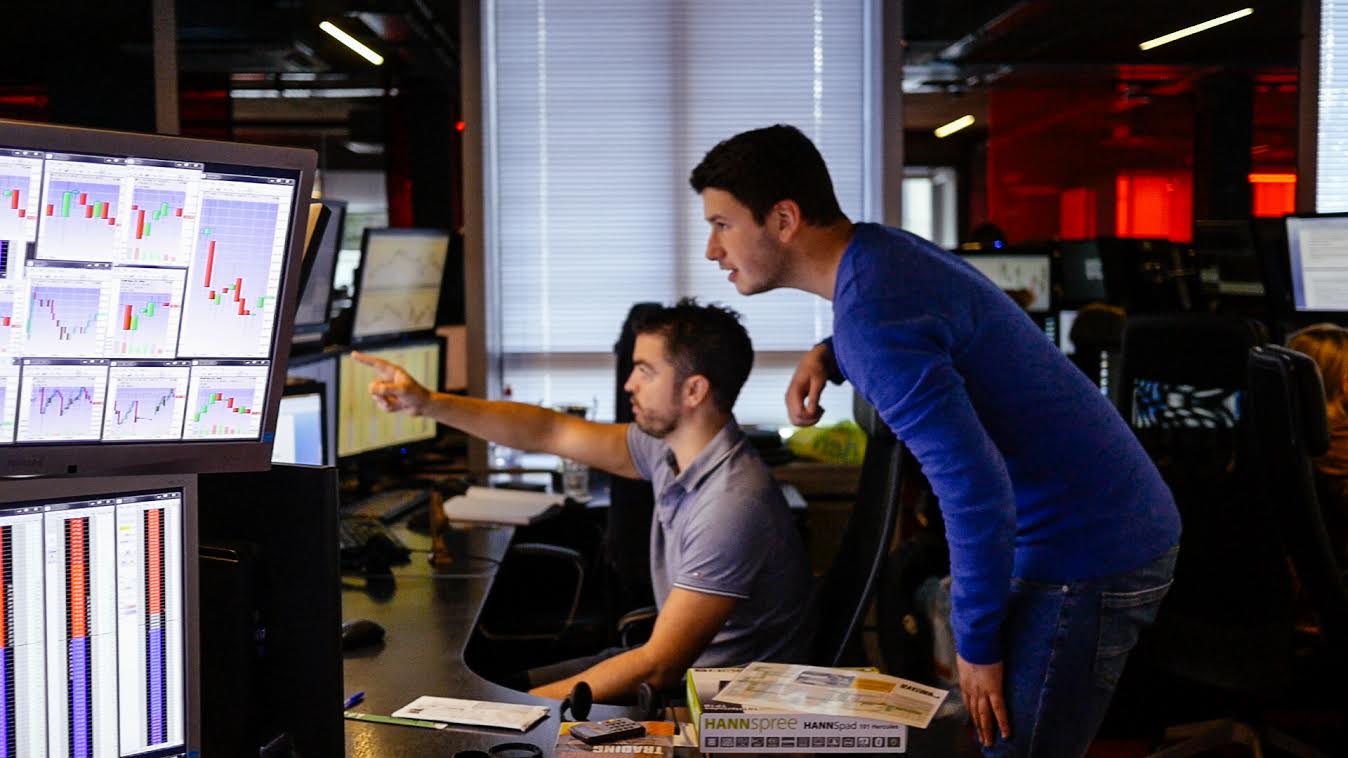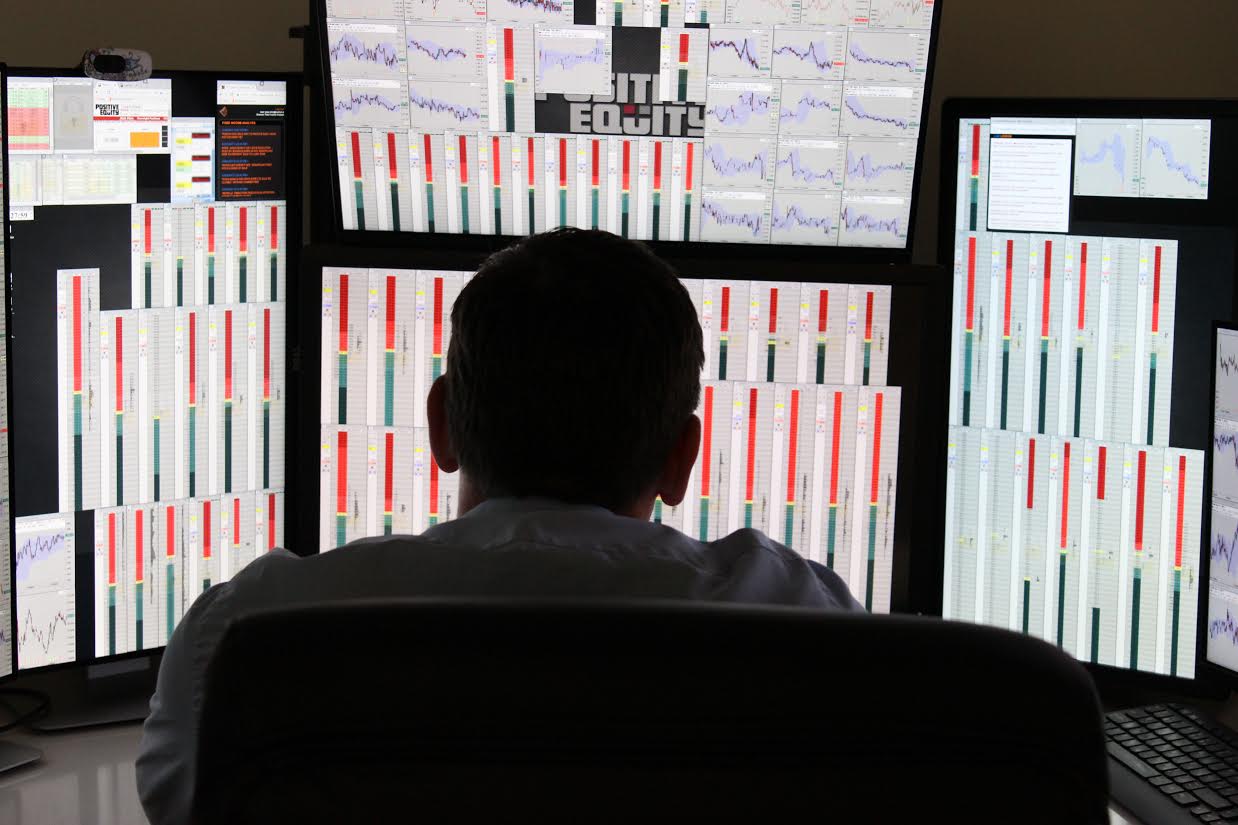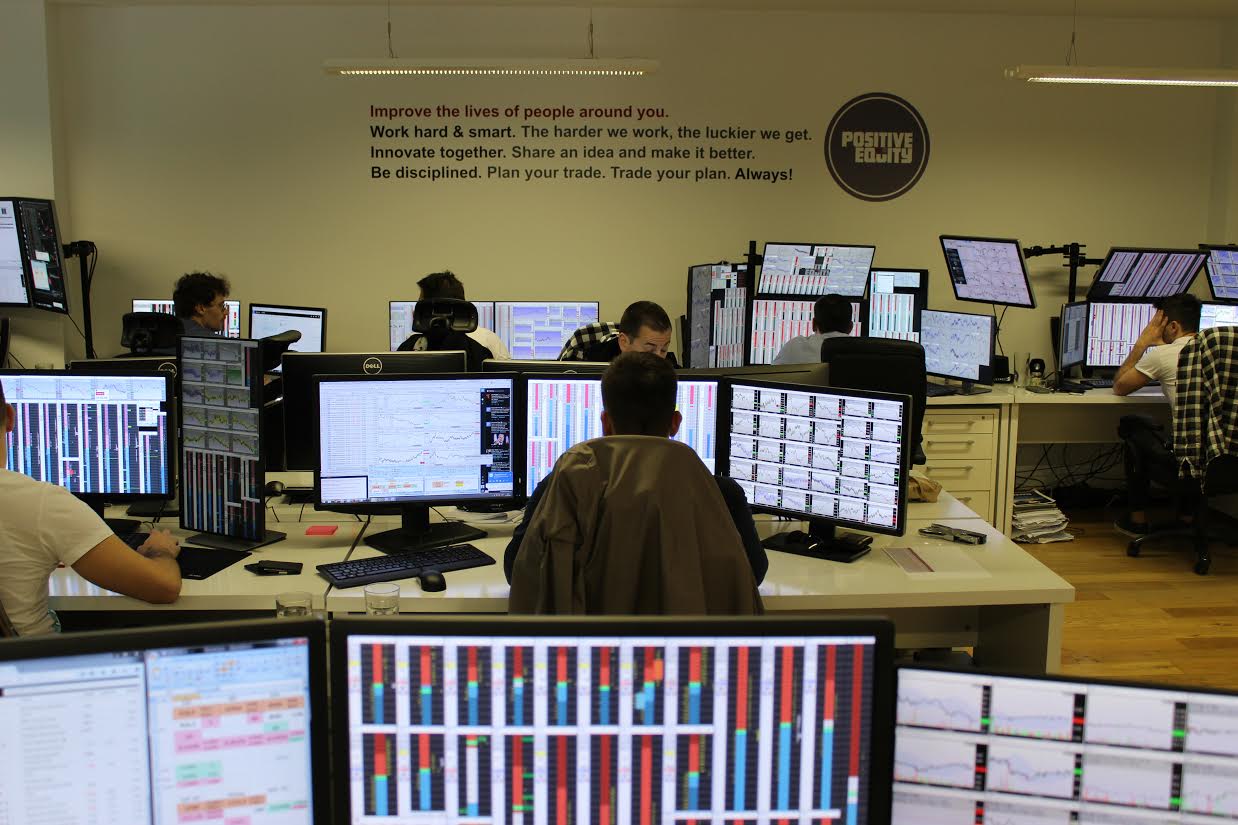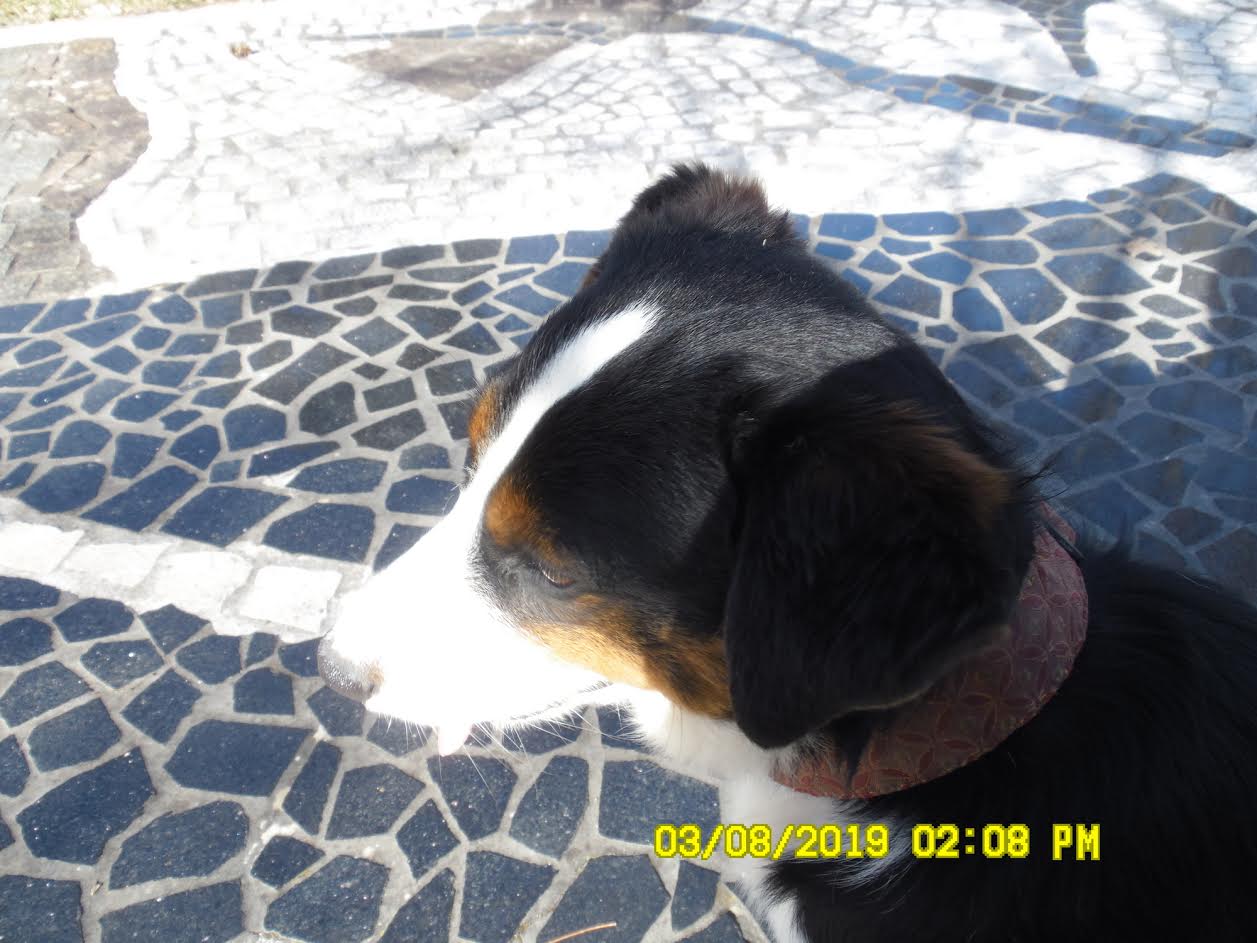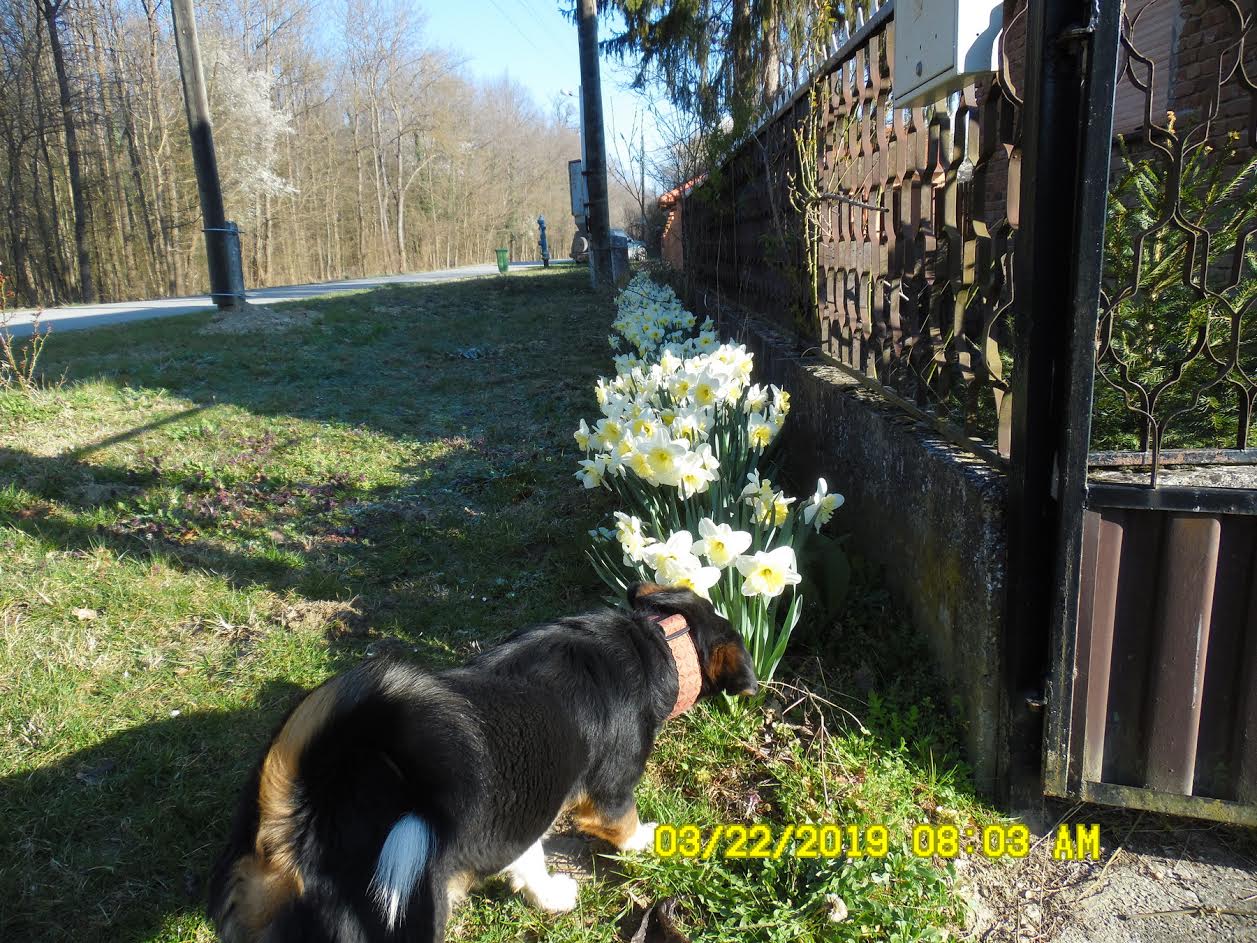Croatian Business Beyond Corona: Bagatin Clinic Online Consultations, Web Shop
April 9, 2020 - With business reeling from the corona effect, meet Bagatin Clinic Online, embracing the reality by bringing forward its digital future plans.
Here is a question for you as you sit in self-isolation reflecting on past memories and dreaming of a better future in the post-corona era.
Who was the last person you shook hands with, and when was it?
In my case, it was exactly a month to the day since I shook hands with Ognjen Bagatin, the charismatic and dynamic CEO of Bagatin Clinic, whose single-minded determination to develop Croatia's medical tourism industry, foster the entrepreneurial spirit in Croatian society, and strengthen ties between Croatian entrepreneurs and the business community in the diaspora have infected everyone he meets with the same enthusiasm.
It was that determination which saw one of the top names in healthcare, Cleveland Clinic, agree to partner with Bagatin at the inaugural European Patient Experience and Innovation Congress (EPIC) in Dubrovnik. Some of the biggest names in global health were due to appear in Kings Landing from March 19-21.

Here we are in Berlin just four months ago, with Alfred Frankovic from the Kvarner Health Cluster (right), Ognjen, kolegica and legendica Andrea Stipanic, with this TCN correspondent, who had agreed to wear Bagatin's famous red and white Croatian tie to support the tiny nation which dared to dream.
And dream it did, dreams which were realised. It was an honour to be there in the front row, as Ognjen and Andrea stepped up to the podium at the International Medical Travel Journal awards on behalf of Bagatin Clinic, winners of Best International Cosmetic Surgery Clinic 2019.
Life was going very well, and everything built on a VERY solid foundation.
And then... corona.
It must have been heartbreaking after all the effort (and cost) put in for the EPIC conference in Dubrovnik, for it to be cancelled. But that was in a different era, when we still thought conferences were possibly going to happen. I noted with some irony on the day the event was supposed to open that Dubrovnik got its first case of corona.
And then, 3 days later, having had to close the clinics with the new restrictions, another disaster - the Zagreb earthquakes.
Some damage to the clinic, but more significantly, sufficient damage to his home that it was not safe for him to stay there with his adorable two young sons and wife.
At that point, most people would have given up, but while he may have been temporarily dazed by the hammer blows, he did not take the easy option and downsize his team, but rather got into crisis management mode and restructured. Part of that restructuring was bringing forward some of his plans for Bagatin Clinic Online, most notably online consultations and a new webshop - details of both you can find below in the official media material from the clinic.
Croatia needs more entrepreneurial fighters like Ognjen Bagatin and his merry men, and I sincerely hope that the government gives the private sector the support it needs to get back on its feet and move this country forward.
Ognjen, I salute you, Sir, and may yours be the first hand that I shake when all this is over.
And now, learn more about Bagatin Clinic Online Consultations and webshop.
The safety, enjoyment and health of you - our clients, our patients and all of our doctors and non-medical professionals - has always been our first concern.
Following on this top priority, with the many measures we have taken within Bagatin Clinic itself, we have also decided to go one step further and enable you to have online consultations with our team of experts from the comfort and safety of your home.
Telemedicine has been in our plans for a long time, and now, with the desire to do and help as much as we can, we have decided to offer this service for free until these extraordinary circumstances that have struck us have passed. We are here for you!
Free online consultations are available for the following services:
- dental consultations based on an X-ray
- tattoo removal consultations
- FUE hair transplantation consultations
- medical cosmetology consultations for facial and body treatments and laser hair removal
Whether you have a problem with your facial and body skin, you have questions about a specific treatment or problem, how to perform a particular treatment and procedure, are interested in a recovery period, are unable to find information on the Internet, or need help selecting a product in our webshop, book your appointment with our doctors and medical cosmetologists and get all the answers.
We also offer consultations for dermatological issues with our dermatologists, with a 50% discount, at a price of 200 kuna.
Easy to use
The method is very simple! Participation in online consultations is possible via a mobile device (Android, iOS/iPhone) or any personal computer that has a microphone and camera. So, by using a webcam or your phone's camera, you can see our doctor and he can see you in real time.
The first step for online consultations is to contact our call center, who will, in agreement with you, book a 30-minute appointment with your preferred doctor or medical cosmetologist. When ordering an online consultation, you will receive an appointment invitation on your e-mail address that contains details of the date and time of the appointment, as well as a link to the so-called virtual room. By clicking on the link the necessary, free, app will automatically install, and you can begin your consultations with our doctors or medical cosmetologists.
In each virtual room, it's just you and our doctor or medical cosmetologist, and all communication is encrypted, so you don't have to worry about your safety and privacy.
The popularity of telemedicine
Telemedicine is a blend of technology and medicine that involves the use of electronic communications and software to provide healthcare services to patients without their personal visit to healthcare facilities. It allows us to diagnose, treat and control patients remotely, but also provides the option of answering specific health questions and educating and advising our patients. It is an indispensable link in the development of a quality medical system based on new technologies and digitization.
Telemedicine, or online consultations, is a tool that represents the future of healthcare because it enables doctors to connect with their patients via telephone, email or specially designed software solutions, and with their personal interaction and individual approach, give expert opinion on particular health issues.
Advantages of online consultation
The use of telemedicine has many benefits for patients as healthcare users:
- avoiding unnecessary exposure to others
- practicality
- shorter waiting time for consultations
- availability of quality medical diagnostics and treatment
- privacy and confidentiality
- minimizing the cost of time
- better patient experience and satisfaction
- better treatment outcomes
BAGATIN MEDICAL BEAUTY WEBSHOP - YOUR NEW DESTINATION FOR EXCLUSIVE DERMOCOSMETICS
To ensure an adequate care for all our clients and patients, we have launched Bagatin Medical Beauty - a webshop that offers dermatological cosmetics and make-up products trusted by our experts.
As of last month, a number of exclusive dermocosmetics products are available on the website, which will, in addition to purchasing, be equipped with useful tips and services, all for the sake of your health and the beauty of your skin.
The best brands of dermocosmetics
A wide range of products on the Bagatin Medical Beauty webshop is made up of only the best brands of dermocosmetics and make-up, not available in drugstores or perfumeries. The specialty of such products lies in the fact that their ingredients, besides nourishing the skin, solve and reduce various problems - acne, rosacea, skin dehydration, pigmental changes and slow down aging.
Ognjen Bagatin, the CEO of Bagatin Clinic, said: The idea of opening a webshop was influenced by our clients and patients. As in addition to treatments, we always advise care that they can use at home. Therefore, we have decided to select professional products that are more difficult to access in the market and offer to our existing, but also new clients the products to which we are both privately and professionally loyal to.
In addition to products not widely available, the Bagatin Medical Beauty webshop features a modern design, good user experience and a simple interface.
Advice from experts
Proper care means knowing your skin and then choosing the right care. Webshop clients can be assured of a good product selection with the expert advice of our operators available via telephone and web chat, and there’s also a special benefit they can expect - VISIA professional skin analysis at especially affordable prices at our Clinic.
Useful tips from our doctors and cosmetologists are also available in the form of blogs, videos of routines and proper use of products and makeup application - all to make sure you find exactly what your skin needs.
Simple purchasing
Although very simple, Webshop Bagatin Medical Beauty is not only a sales catalog of products, but a complete interface with the choice of what you need, that is, the continuation of the service we provide at the Clinic.
An overview of the products, organized by different care categorories, will give you information about the product, ingredients and usage, and the purchase itself takes place in just a few clicks.
The benefits of shopping at the Bagatin Medical Beauty webshop are the simplicity, speed, availability of all information, and the guaranteed quality in excellent packaging. In a short period, your favorite product will be available at your home address.
Our brands
Sales begin with brands that we have been working with for years and that we trust, but we will not stop at them - new brands will gradually be introduced into our offer, whose quality has been proven with a longstanding tradition.
The represented segments currently relate to dermocosmetics with an emphasis on Reviderm and Mesoestetic products and the Reviderm Skin Jewels make up line, and over time the range will expand to other beauty and lifestyle segments.
All product news will be available on our social networks, and all those who subscribe to the newsletter will have the opportunity to be the first to read new information and get additional benefits.
Reviderm
The REVIDERM dermocosmetics line is well known to all clients of Bagatin Clinic. These are high quality products that are somewhere between medical products and cosmetics. In addition to nourishing, they successfully improve the condition of the skin and address existing deficiencies.
Reviderm Skin Jewels
In addition to REVIDERM dermocosmetics, you can also find Reviderm's make up line called Skin Jewels on our Webshop. Products can also be used by people with problematic and sensitive skin, and the special advantage is that it can be used after facial treatments.
Mesoestetic
A global leader in the cosmetic and aesthetic medicine sector, Mesoestetic has gained a number of loyal clients throughout their long tradition. Find the well-known Mesoestetic chemical peels in our offer, that have been awarded the excellence category for years by thousands of people around the world.
The accelerated pace of today's life also offers certain benefits - the convenience of buying from the comfort of your own home via a cell phone or computer has never been greater.
Visit our webshop bagatinmedicalbeauty.hr and enjoy your shopping today!
Health Minister Urges Croatians to Stay Home for Easter
ZAGREB, April 9, 2020 - Croatian Health Minister Vili Beroš on Thursday called on citizens to stay home during the coming Easter holidays and said that the key to success in fighting the coronavirus epidemic was in their hands.
"The key to success lies in our hands. During these holidays it is more important than ever to stay home. For a healthier future we must act now and we must act decisively," the Minister said at a cabinet meeting while presenting activities taken to curb the epidemic in the past week.
He underscored the additional efforts made to expose fake news on the coronavirus and their consequences.
"False claims about the coronavirus pandemic can put human lives at risk and they further provoke anxiety and fear. Therefore, I call for utmost caution and relying solely on official sources of information," Beroš said.
He also said that there were 1,518,719 infected persons globally, with 88,502 fatalities and 330,589 recoveries.
In Croatia, a total of 13,125 persons have been tested, of whom 1,343 tested positive since 25 February. The percentage of those who have tested positive is 10.11%, Beroš said.
He also presented a graphic illustrating the trends for the number of infected persons in Croatia since the outbreak, which shows that the increase in the number of cases is still linear and that there is no significant increase.
More coronavirus news can be found in the Lifestyle section.
Riding the Stockmarket Corona Rollercoaster: A Trader's View from Split
April 9, 2020 - Nowhere has the corona rollercoaster been more volatile than on the stock markets. So how is life as a trader in the sunshine in the Dalmatian capital of Split, and who does all this compare to 2008 and 9/11?
The stock market is a brave place to be dabbling in right now with the global corona rollercoaster, but for some it is a way of life and full-time job. I am very grateful to Jason Berry of Positive Equity for finding the time to tell us how all this madness looks from the trading floor in self-isolation in Split.
Some people have nothing to do at the moment as they sit out this isolation, others have never worked harder. Which is it for you? Tell us about your day.
We haven’t been this busy since 2008. Our business is inversely correlated with the general market cycle. This means that when markets are up and the bulls are in charge, our daily grind is fairly moderate. But when fear takes over and the markets are tanking, we become exceptionally busy.
Our normal day takes part between 8 am and 10 pm. Each trader works some version of those hours. European markets open at 8am, most people at their desks 7:30, reading the news, catching up with what happened in Asia. The US markets and most major European markets are open until 10 pm. I work noon till 10 pm. They are long hours be we have lots of breaks in there, first a kava, lunch, gym, second kava, third kava, etc. it's hard work but its quite flexible in many ways. Well, that all changed when Covid-19 started to hit the markets.
I started staying up until midnight on Sundays to see the open of Asian markets and on 4 of the last Sundays stayed up working until 3-4 am, sleep, then back up for European open, trade for 3-4 more hours, nap around 10 am to noon, then back at it until 10 pm. It was insane. The markets just didn’t sit still. They have been the busiest I’ve seen them since 2008, and not in a good way. They say the markets go up the stairs, but down the elevator shaft.
We’re now only just starting to emerge from one of the busiest months of my career. We’re all exhausted.
On a more human level, our day has changed. We used to go out to lunch or eat at a café, now we order Wolt and get coffee in a plastic cup from a machine for 3 kuna. I’ve discovered a lot of tasty restaurants: Skatula for pulled pork sambos, Maka for sushi poke bowls, Cookie Lab for croissants and OJ. We see nobody. Most of us are isolated from our families. We have a number of international traders and they can’t see friends and live alone, that’s tough. I’m putting together an Easter basket for them.
We’re lucky in that we are only wrestling with the medical and psychological aspects of this crisis whereas other folks have the financial bomb lobbed in there as well. These are very strange times we live in.
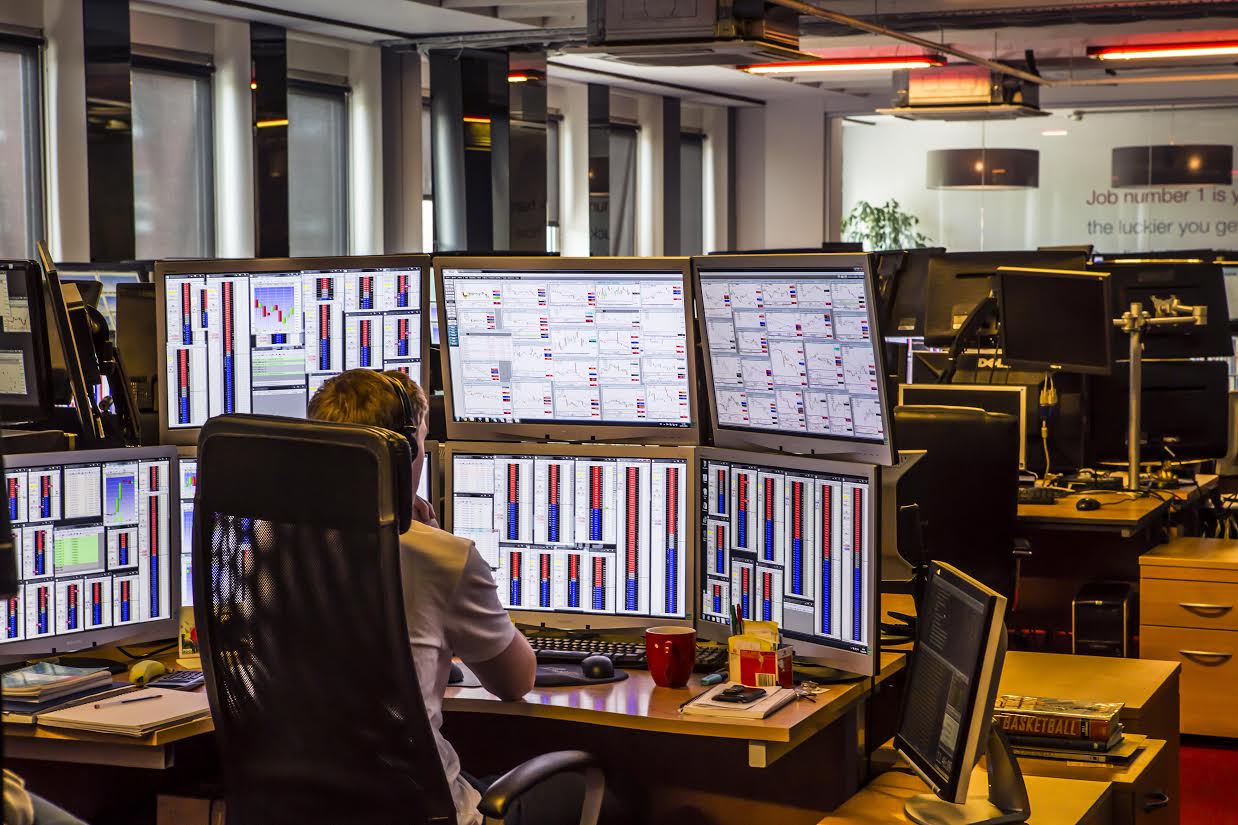
From your recent TCN interview for our expat self-isolation series, you said you picked up the corona threat very early. Give us the timeline from a trading point of view - when did things really start to affect the market.
Well, the virus arrived first in China. The China50 or top 50 stocks in China started getting smashed on January 21st. We watched for a week of carnage but after they put the quarantine into effect things stabilized and recovered a bit into February. We took note but it was still far away and not personal yet.
Then February 20 and 21st the virus spread to Europe, and Italy in particular, and we started seeing significant down moves in European indices and the US. This is when we started getting ideas that things were not OK, but still it somewhat controlled down moves. We made jokes in the office, told our friends not to travel to Asia but we were not self-isolating or anything yet. The following week changed all of that.
In the last few days of Feb and the first few days of March, panic began to hit the markets as people began to realize the economic and societal impact, and that unlike earlier outbreaks, it was deadly and wouldn’t just stay in Asia. 10 years of recovery was undone in a couple of weeks. So for us on a personal level, the indicators were when it started to hit Italy and how the markets reacted to Italy. We started to isolate the end of the first week of March. We sent home all non-trading staff, ended our interns' 2-month internships early and reduced staff in the office. We began setting up people to work from home. One of our trainee traders returned to Opatija out of fear that he wouldn’t be able to visit his family and chose to work from there. Our IT staff member set everybody up in a frenzied week so we could operate from home. We discussed with all staff members about the need to self-isolate and began that process. But we only began that probably 10 days ahead of the Health Ministry’s official notice. Some of us were actually scheduled to go skiing in northern Italy. Thanks to my wife I didn’t go.
The rest of March was manic. We worked crazy hours. Markets were busy all day and all night as traders around the world tried to digest the information coming from WHO, Italy, Europe, and the US.
So far so good. No infections in the office or our families, thank goodness.
How does this compare to 2008?
2008 was more drawn out. But we’re early days still, so time will tell. The 2008 market crash started in March with the small investment bank Bears Stearns going bust because they had so much mortgage garbage on their books. Markets dove initially, but then recovered for much of the spring and into the summer, but then it all started up again in late summer and lasted all the way until Christmas. As traders, we were exhausted. It was months of full-on days just strapped to the desk, ordering lunch and not moving off the chair. The main carnage in the markets lasted around 4 months. At the start of the year, markets continued down but at a moderate controlled pace and then turned around March. It took the next 10 years to recover.
This time the majority of the crash has happened in a very short period of time, less than a month. I think the markets digest information much more quickly nowadays. Investors and traders react much faster, whether that is because there are more computer programs active in the markets or just because of the general digitalization of the markets away from open outcry (traders on trading floors on exchanges) which doesn’t really exist anymore. Whatever the reason, markets react a lot faster to news than ever before.
All this volatility must be good for someone. How is business?
Busy doesn’t mean good. But in general, our business has a reverse correlation to normal business cycles. It’s an odd business in that regard and an odd feeling in the office. We’re doing well but the news and personal effects on our lives aren’t. You feel melancholy. It was a similar feeling during the recession. The worst of these market shocks was the September 11 tragedy, and Covid-19 is bringing that feeling back. It’s a strange set of feelings, very hard to describe. As businesses go, we’re in a good space, no exposure to tourism, we can work remotely, and we’re in a good place of our business cycle.
With such unprecedented volatility and uncertainty, do all your instincts and training go out the window at a time like this? How has your approach to trading changed?
When markets go bananas this is when we see if all the training works. This is when traders are really tested. This is when if there are any skeletons in your closet they come out. The number one fear of our firm is that a single person will blow us up during extreme market moves. We’re happy to report that all our traders performed admirably, especially our Croatian traders. Svaka cast, momci.
Talk to us about oil prices and what might happen.
I’m not an investor so the long term picture for me is as fuzzy for me as it is for most people. Russia and Saudi are at loggerheads about how to address the loss of demand. No planes in the air, no trucks on the roads, no ships on the sea. Everything has stopped. All this while there wasn’t a real reduction in production. Then Russia said we’re not going to reduce and in response Saudi flipped them the bird and said the same thing, and so oil tanked. Now they are talking about an Opec+Russia+USA meeting. We’ll see how that turns out. Historically we’re at lows, but one never knows. It’s hard to believe you can get a barrel of oil for less than a barrel of mineral water! Opec plus Russia and the US will most likely sort something out but if they don’t, hello 10 dollars a barrel.
Your prediction of the value of the Dow this time next week, next month and next year.
I’m a trader, not an investor, but I am instructing my personal investment manager to rearrange my portfolio to a much riskier heavier on stocks portfolio. But I highly recommend anybody thinking of getting involved in the markets or investing, speak to a pro first. If not, getting involved in the markets is like gambling.
There are obviously some people buying at the moment. Which sectors are you seeing the most movement in?
The main rules of investing are buy strength. So figure out which industries weren’t smashed as much and buy those. Obvious ones are mask producers, delivery companies, and groceries, but that play is largely over. Long term, think about what industries and companies always do well. But don’t go bottom-feeding, a lot of companies will never recover from this, they were too laden with debt to start with and have no financial flexibility.
Cruise ship shares have taken a dive. Do you think they are coming back?
Again I’m not an investor, my personal opinion is that some of the best will recover, the worst will not. It was a hard business to start with. I think Zoran Pejovic hit the nail on the head with his piece on how tourism will change. People will want a lot more privacy and stay away from masses of people. Cruise ships aren’t that.
And the question we all want to know - when will all this be over?
Human nature is to overplay good news and underplay bad news. We have months of lockdown in front of us. China is only just now emerging. They were in lockdown for basically a little over 3 months. We started ours a month ago in Croatia, the UK and US just began, so there is a long road ahead for sure. China went full lockdown immediately. Croatia is 80% lockdown, unlike Italy and Spain. The UK messed around and will unfortunately pay a heavy price. The US is still messing around and will undoubtedly lead the world in a way nobody wants them to. Tragic. But the real answer is nobody really knows for sure. So hunker down, get a healthy routine, and prepare for the long lockdown. If it ends sooner, great, if not, we’ll all be prepared.
The good news is that the markets have been going up from their lows for the last two weeks. The media loves bad news stories, or rather, humans love reading bad news, so the media obliges. The market always reacts ahead of where the current situation is both on the downside and the upside. Whether that means the markets are satisfied with political, medical, and economic measures that have been taken is hard to say. For now, the markets have stabilized. If there is another move down, it will be from a resurgence in Asia, calamitous health results from the US lockdown, and a longer time frame for getting economic activity going again. The big catalyst will be the cure. Once that happens normalcy will begin to return. But until that happens the virus is here to stay, and that will have effects everywhere and specifically for us here in Croatia.
In Croatia, that recovery will be a lot longer. I don’t follow Crobex, but the short and long-term effects to an economy where corruption hasn’t been fully weeded out and where tourism is a cornerstone will be, I’m afraid to say, more severe. Until there is a cure, most people are not going to want to travel anywhere. Hunker down and do what you need to do to get to the other side.
You can contact Jason Berry via his Positive Equity website.
For the latest on corona in Croatia, follow the dedicated TCN section.
PBZ Donates 3.5 Million Kuna to Croatian Hospitals in Coronavirus Fight
After a massive donation of 1 million kuna to Zagreb's ''Dr. Fran Mihaljevic'' Clinic for Infectious Diseases, the PBZ (Privredna banka Zagreb) Group is donating an additional 3.5 million kuna to Croatian hospitals to help them with the fight against the coronavirus pandemic.
As Novac writes on the 9th of April, 2020, this donation is part of the PBZ Group's efforts during these utterly extraordinary circumstances to assist health care providers in combating the coronavirus pandemic (COVID-19) and in treating those who have contracted the infection in Croatia, as well as for help in remedying the aftermath of the devastating earthquake that struck the city of Zagreb recently.
The donation totalling 3.5 million kuna includes seven Croatian hospitals, all located in Zagreb, that will be donated to 500,000 each kuna.
"Croatia is one, we should always keep that in mind, and help our country whenever we can, and especially now during these extraordinary circumstances. In response to our community's needs, in early February, we donated one million kuna to the Dr. Fran Mihaljevic Clinic for Infectious Diseases for the procurement of medical equipment. Now, two months later, faced with the coronavirus pandemic and the aftermath of a strong earthquake, we have decided to donate an additional 3.5 million kuna to hospitals for the medical equipment they need. This donation is part of our corporate social responsibility project 'I do good every day' through which we continuously support national, long-term projects for the well-being of children and young people, but we also respond to the current needs of our society," said Dinko Lucic, CEO of Privredna banka Zagreb.
"On this occasion, I'd like to thank the PBZ Group once again for recognising the need and taking the initiative which will provide for better quality work in our earthquake-damaged health care facilities and thereby facilitate day-to-day care for patients during the coronavirus epidemic," said Prof. dr. sc. Vili Beros, MD, Minister of Health.
As touched on, the PBZ Group made the generous donation of 3.5 million kuna as part of its humanitarian project 'I do good every day', which has been helping the community for over ten years now. The project was launched by the Group back in 2008 to continuously offer long-term support to the community in which it operates, allocating one kuna for each transaction made with a Visa card, at no additional cost to card users.
The PBZ Group has so far raised more than 19 million kuna for the project and, including these latest ones, has made a total of 48 donations to hospitals and social care homes across Croatia.
Make sure to follow our dedicated section for more on coronavirus in Croatia.
Foreigners Self-Isolating in Croatia: Do You Feel Safer? Philip from UK in Ferdinandovac
April 8, 2020 - Do foreigners in Croatia feel more or less safe sitting out COVID-19 here than in their home country, and what are their experiences? A new series on Total Croatia News, with Philip Riley from the UK in Ferdinandovac as the 34th contributor.
Oxford University recently published some research on government responses to coronavirus which showed that Croatia currently has the strictest measures in the world. While inconvenient, this is a good thing in terms of reducing the spread of the virus, and I am certainly not alone in my admiration of the official Croatian handling of this crisis in recent weeks, both in terms of action and communication.
But what do other expats here think? And how does it compare with the response in their home country? Would they rather sit this one out here or there? A new series on TCN, we will be featuring expats from all over the world to see what their views are on life in corona Croatia rather than back home. So far we have heard from expats in Croatia from Romania, USA, Ireland, UK, Mexico, Argentina, Spain, Singapore, Holland, Canada, India, Hong Kong, Venezuela, Latvia, China, Honduras, Hungary, Moldova, South Korea, Japan, the Philippines and Germany. Next up, Philip Riley from the UK in Ferdinandovac.
If you would like to contribute to this series, full details are below this interview.
My name is Philip Riley and I am from the Coventry area but lived in Scotland before I moved to Hungary in 2010. I still have my small cottage in the Moray area of Scotland but it is rented out and that provides me with a small income to enable me to live in Croatia. I moved from Hungary to Croatia after failing dismally at learning Hungarian. Although my Croatian is also minimal I am less isolated here because more people can speak English.
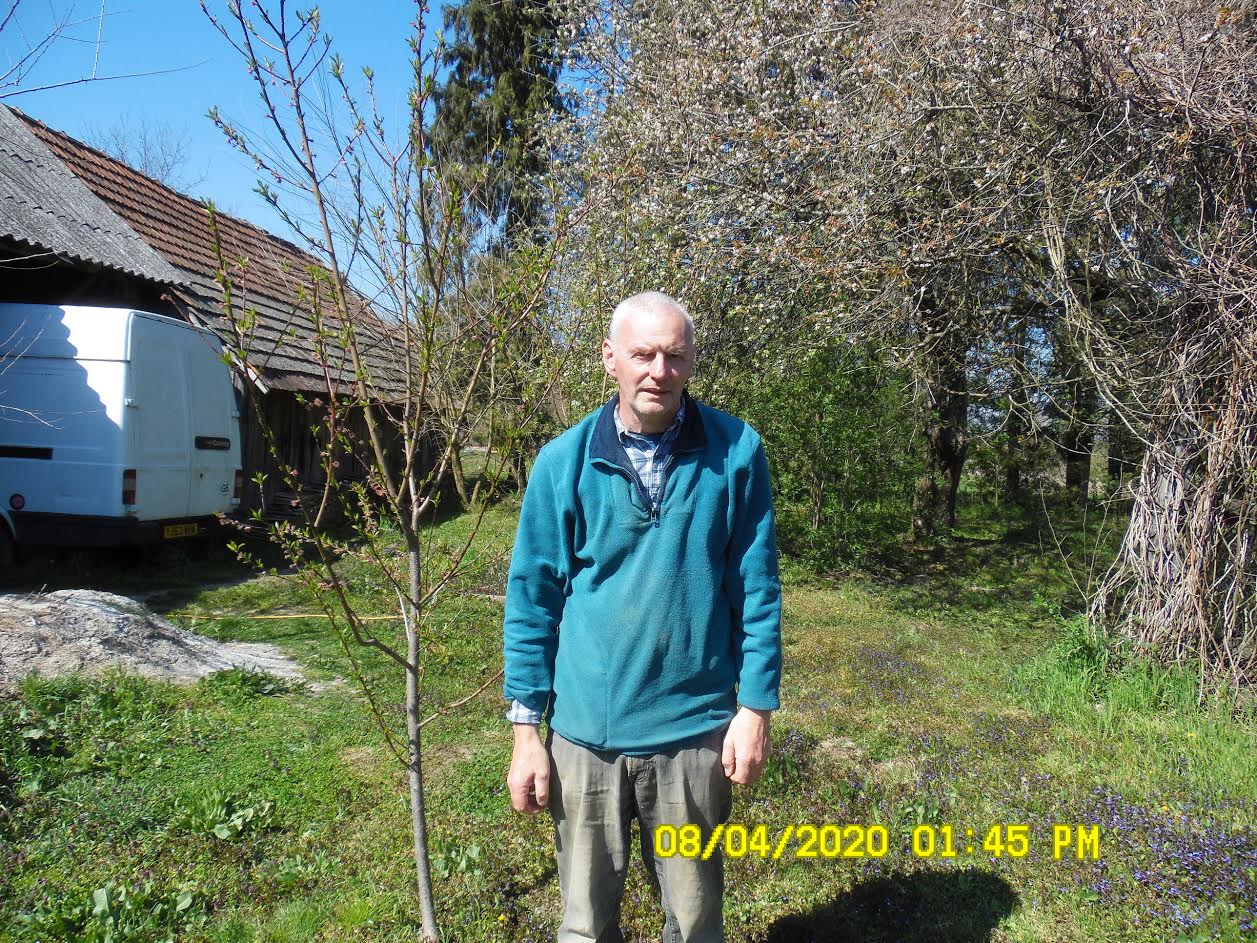
Firstly, how are you? Are you alone/with someone? Tell us a little about your situation and sanity levels.
My health is OK apart from hayfever, something I have suffered for most of my life at this time of year. I am retired and live alone in a small village near Ferdinandovac with my little dog, Dennis. I am doing much the same as normal, mainly gardening and house renovations. So far the only real frustration was that I could not meet with friends to celebrate my 60th birthday.
When did you realise that corona was going to be a big issue?
At first I thought it would be like Ebola and other recent diseases, which were better contained and did not cause widespread disruption. I am in Facebook groups for Croatia and Hungary and have seen the situation unfold through the many threads discussing the virus and measures taken to control the situation.
What is your impression of the way Croatia is dealing with the crisis? How safe do you feel?
Initially I felt that Croatia was taking things too far and it was a case of politicians who want to make names for themselves but my opinion has changed and I now grasp the enormity of the threat. I feel fairly safe from the virus itself but the long term economic and social damage is hard to predict at this stage. My income, like that of many others, could dry up as a result of these economic consequences.
Now compare that to your home country and how they are handling it. What is Croatia doing better/worse?
I am from UK and have a very low opinion of the current UK government. They appear to be doing too little, too late and as a result it seems likely that many thousands of people will die. The health service has been underfunded for years and will simply be overwhelmed by the numbers. The UK has a much higher population density than Croatia anyway, so things like social distancing are more difficult to implement. Most public transport is still running and is one of the main ways people are likely to be too closely grouped together.
What about official communications from the authorities, compared to your home country?
I have been relying on Total Croatia news for English translations of government press releases etc. and they have been doing a fantastic job! My Croatian is very limited but so many people I meet speak English that I have been able to do what they ask in supermarkets etc. Again I have not been impressed by the UK government in terms of being kept informed. A few months ago I registered with the UK government for email updates regarding Brexit and any consequent actions required of UK expats living in EU countries. I thought they would use this email mailing list to send us information about the virus control restrictions but nothing so far!
What's the one thing you wish you had taken with you into self-isolation.
That is a difficult question but I used to live in Hungary and still go there to do shopping sometimes. I can't cross the border now so I wish I had stocked up on a few jars of Lecsó.
One thing you have learned about yourself, and one thing you have learned about others during this crisis.
My income is low and I live quite frugally. This means I don't go out and about very much at the best of times, so the restrictions affect me less than they would many other people. Having said that, it is always good to know that you have freedom, even if you don't do much with it! Having such freedom curtailed is frustrating me more than I would have expected.
Something positive that has come from this crisis is that people are contacting each other more, even if it can only be by email or phone. I have heard from several old friends who would rarely contact me in normal times, I suppose they are usually too busy. Most people seem to be staying calm and getting on with what they have to do. My mother used to tell me about life during World War Two, with bombing, air raid shelters, rationing etc. In some ways that crisis brought out the best in people and I can see something similar now. People are starting to appreciate that having each other is more important than personal wealth, material possessions etc.
Thanks, Philip. Stay safe and see you on the other side.
TCN is starting a new feature series on foreign experiences of sitting out COVID-19 here in Croatia compared to their home country. If you would like to contribute, the questions are below. Please also include a para about yourself and where you are from, and a link to your website if you would like. Please also send 3-4 photos minimum to This email address is being protected from spambots. You need JavaScript enabled to view it. Subject Corona Foreigner
If you would be interested to record a video version for our partners www.rplus.video please let us know in the email. Thanks and stay safe.
Foreigners Self-Isolating in Croatia: Do You Feel Safer Than in Your Home Country?
Firstly, how are you? Are you alone/with someone? Tell us a little about your situation and sanity levels.
What do you think about the economic measures the government is taking, are they helping your business? (PLEASE IGNORE IF THIS DOES NOT AFFECT YOU)
When did you realise that corona was going to be a big issue?
What is your impression of the way Croatia is dealing with the crisis? How safe do you feel?
Now compare that to your home country and how they are handling it. What is Croatia doing better/worse?
What about official communications from the authorities, compared to your home country?
What's the one thing you wish you had taken with you into self-isolation.
One thing you have learned about yourself, and one thing you have learned about others during this crisis.
TCN has recently become a partner in Robert Tomic Zuber's new R+ video channel, initially telling stories about corona experiences. You can see the first TCN contribution from this morning, my video from Jelsa talking about the realities of running a news portal in the corona era below. If you would like to also submit a video interview, please find Robert's guidelines below
VIDEO RECORDING GUIDE
The video footage should be recorded so that the cell phone is turned horizontally (landscape mode).
There are several rules for television and video news:- length is not a virtue- a picture speaks more than a thousand words
In short, this would mean that your story should not last more than 90 seconds and that everything you say in the report should be shown by video (for example, if you talk about empty streets, we should see those empty streets, etc.).
How to do it with your cell phone? First, use a selfie camera to record yourself telling your story for about a minute and a half. Ideally, it would be taken in the exterior, except in situations where you are reporting on things in the interior (quarantine, hospital, self-isolation, etc.). Also, when shooting, move freely, make sure everything is not static.
After you have recorded your report, you should capture footage that will tell your story with a picture, such as an earlier example with empty streets.
One of the basic rules of TV journalism is that the story is told in the same way as a journalist with his text. Therefore, we ask you for additional effort. Because we work in a very specific situation, sometimes you may not be able to capture footage for each sentence of the report. In this case, record the details on the streets: people walking, the main features of the city where you live, inscriptions on the windows related to the virus, etc.
The same rules apply if you are shooting a story from your apartment, self-isolation, quarantine. We also need you to capture footage that describes your story.
When shooting frames to cover your reports, it is important that you change the angle of the shot (in other words, shoot that empty street from several angles). Also, when shooting a detail, count at least five seconds before removing the camera to another detail.
The material should be about 5 minutes long (90 seconds of your report + frames to cover your story).
After recording everything, send us to Zagreb, preferably via WeTransfer to This email address is being protected from spambots. You need JavaScript enabled to view it.
Will Croatian EU Membership Help it Recover from Crisis More Easily?
As Adriano Milovan/Novac writes on the 8th of April, 2020, rather surprisingly, the Republic of Croatia is among the more resilient countries and economies in terms of risks and shocks, the research of insurance company FM Global shows. Could Croatian EU membership also help it to emerge from various forms of crisis more easily?
According to the survey, which included 130 countries worldwide, the Croatian economy ranked 37th in the world in terms of resistance to shocks. According to the calculations of FM Global experts, Croatia is even better ranked than Slovenia, which is ranked 42nd in terms of economic resilience, and is slightly lower than Hungary, which ranked 35th. The Croatian economy, according to the research, is more resistant to shocks than the economy of neighbouring Serbia, which is ranked 63rd, or the economy of another neighbour - Bosnia and Herzegovina, which is ranked a concerning 70th. Croatia also ranked better than Bulgaria, which ranked 45th, and Romania, which has been ranked 36th, is slightly better than us in this survey.
FM Global's research refers more specifically to last year, and it analyses various forms of risk for individual national economies - from political, to economic to natural risks. This insurance company, they say, is primarily a tool that should help the management of companies in making business decisions, including investments.
The study, therefore, doesn't directly address the resilience of world economies to the impact of the current unprecedented coronavirus pandemic. However, as the international media and Croatian analysts point out, the report could also look into the recovery dynamics of the Croatian economy once the coronavirus crisis has ended.
Of course, there are a lot of question marks throughout the story, given that this is a shock that the world, and one that even the historically unlucky Croatia has not yet encountered. Questions have been raised as to how long the coronavirus-induced crisis will last, as well as what its consequences could be. But, the economists Novac spoke with hope that Croatia will still emerge from the coronavirus recession more quickly than it did during last recession, in which the country spent six very long years. The reason is simple: Croatian EU membership, a badge which gives it the opportunity to make greater use of money from European Union funds, and makes it subject to the rules of conduct of the Union.
''Today, Croatia is in a different situation than it was in back in 2008 and 2009. The EU has forced the government to stabilise public finances, and much has been done in this regard, with interest rates lower today than at the beginning of the last crisis. In addition, this time, the government reacted swiftly and adopted packages of measures for businesses. Therefore, the chances of a faster recovery today are certainly higher than they were during the last crisism'' says Damir Novotny, a reputable economic analyst.
He added that Croatian EU membership is particularly important here, which certainly strengthens the overall resilience of the Croatian economy. Because of all this, Novotny believes, the prospects for the recovery of the Croatian economy are much better today than they were when the last recession hit the country.
This does not mean, however, that once the coronavirus crisis is over, that recovery will go smoothly and quickly. For starters, Croatia depends very much on tourism, and this year's tourist season can already be considered lost. This means that tourism recovery, which generates a fifth of Croatia's gross domestic product (GDP), can only be expected next year. Furthermore, Novotny warned, Croatia has also entered a new crisis with the same problem as in the last recession - the country's infamous, draconian, cumbersome, inefficient and ubiquitous public sector.
He therefore proposes that Croatia does what the Baltic countries did at the beginning of last recession, and embark on rapid public sector reform. This, he noted, would open up space for the private sector, which would make it easier to get access to the money needed and speed up the recovery of the Croatian economy.
Macroeconomist Goran Šaravanja also believes that Croatia's recovery from the crisis could be much quicker than it was in the last recession. He sees the biggest asset to that precisely in Croatian EU membership.
''Croatia's risk perception is lower today. You can see that when we compare ourselves with countries not yet in the EU, like Serbia and Bosnia and Herzegovina: they're not yet under the EU umbrella and don't have access to such large EU funds as we do, nor are they part of the common market, so, they're riskier,'' explained Šaravanja.
In addition, he added, both the Croatian state, companies, and the population have been quite dilapidated in recent years, making the situation a little easier. In addition, in the past crisis, Croatia entered a double deficit - in the current account of the balance of payments and in the state budget, and this situation has changed in recent years.
"All this will make it easier for Croatia to recover, which, without these mechanisms, would be much harder and much slower," concluded Šaravanja, adding that despite that, the country's recovery will not go either quickly or easily.
Otherwise, according to the Resilience Index, Norway, which is not an EU member state but does hold membership of the EEA has the highest resistance to risks and shocks, and Denmark is the strongest among EU member states. On the other hand, the least resilience among the countries covered by the survey was demonstrated by Haiti, coming in an unimpressive 130th place. Compared to 2018, Rwanda has experienced the biggest leap on the ladder, and Northern Macedonia has seen the biggest drop, a survey shows.
Follow our politics and business sections for more on Croatian EU membership and its effects on business.
Have Government Coronavirus Measures Forgotten About Marinas?
Nautical tourism in Croatia is one of the areas of the country's strongest economic branch which was blossoming before the coronavirus crisis struck. Croatian marinas are a money pot at the best of times, and tourism based precisely on the soft waves of the sparkling Adriatic sea could be a gold mine. That being said, has the Croatian Government forgotten about marinas in their package of anti-epidemic economic measures?
As Marija Crnjak/Poslovni Dnevnik writes on the 9th of April, 2020, after addressing the public a few days ago warning that the Croatian Government had forgotten them in their package of measures to help the economy and the tourism sector due to the effects of the pandemic, Croatian marinas also sent an official letter to the competent ministries and the government itself in order to attempt to halt the collapse of the sector in time for the upcoming season.
Despite the fact that many are claiming that 2020's tourist season is a no go, given the unprecedented circumstances we find ourselves in, Croatian marinas still believe this summer could attract tourists who have their hearts set on nautical tourism in Croatia.
''It's very urgent for us that they recognise the marina system that employs around 2500 people, and the specifics of the sector that mean that we're currently not eligible for the state's minimum wage support. As a rule, marinas are in operation since April the 1st, so we have no evidence that revenue has fallen previously because we were closed,'' explained Sean Lisjak, president of the Association of Marinas at the Croatian Chamber of Commerce (HGK)
During this period, Croatian marinas also started to pay for services from charter companies, and since everything in Croatian tourism has now come to a halt, they aren't in a position to pay for those services, nor are they entitled to state support.
The pressure is increasing, and some marinas have unfortunately begun to send foreclosures to charter companies, Lisjak states. Another problem they're facing is the concession for the use of the maritime domain, which they paid for this year back in February, before the onset of the coronavirus crisis.
''We're seeking for the state to equalise us with the rest of the tourism sector through a measure of release from having to make the concession payment, and the release of the concession payment for 2021. In addition, in the long run, we're seeking equalisation through tax treatment and the lowering of value-added tax rate on marina services to thirteen percent,'' concluded Lisjak on behalf of the Marina Association at the Croatian Chamber of Commerce.
For more on coronavirus in Croatia, follow our dedicated section.
Croatian Scientist Ivan Đikić Claims Croatia is in "Most Dangerous" Phase
As Poslovni Dnevnik writes on the 8th of April, 2020, respected and reputable Croatian scientist at Goethe University in Frankfurt, Ivan Đikić, discussed everything you need to know about the coronavirus epidemic with N1.
A few days ago, the Croatian scientist warned the public about what they should do in the ongoing coronavirus crisis in order to continue the excellent results Croatia has been seeing in the fight against the pandemic when compared to very many other countries.
Commenting on how policies are responding to the challenges of the coronavirus epidemic, Đikić said that it is paramount that experts, epidemiologists, infectologists and scientists provide accurate data and that those who make policies remain in the background and listen to the profession and make their decisions based on their advice, N1 reports.
"In Croatia, we were fortunate that the Minister of Health assumed the responsible function of being an expert first and then a politician. It's evident that he didn't take advantage with his function in the Government or his political identity card, but first and foremost he was an expert and he worked for the benefit of Croatia,'' said Đikić, praising other health care staff up and down the country, adding that they're all working for the benefit of society.
"The only message to politicians is that unfortunately they haven't prepared the health care system or citizens with education that we could have jointly responded to this crisis earlier and there would have been much less loss. But now we are where we are, and we need to fix these shortcomings,'' the Croatian scientist said.
He also criticised the behaviour of individual politicians.
"It's unfortunate and irresponsible that politicians can't at least refrain from arguing and using this tragic situation to their advantage. Croatia could see that the experts were working for its benefit. The politicians need to understand that appointing people as heads of institutions, hospitals and nursing homes is a bad political move,'' Đikić added.
He also appealed to Prime Minister Andrej Plenkovic and SDP president Davor Bernardic, urging them to sit down at a table and act together to include both government and opposition recommendations and jointly decide on protecting health, democracy and citizens from unnecessary political strife.
"We're not in the security phase, we're in a very dangerous phase and such obstacles threaten our progress. If we all work together, we can say that we've been successful,'' the esteemed Croatian scientist told N1.
The prominent Croatian scientist noted that he was in contact with the Minister of Health, Vili Beros, and that he advised him and citizens whenever he was called upon.
"I'm really trying to help the public and the experts with all of my advice," Đikić said.
"Be responsible. Understand that we have no drugs or vaccines [for coronavirus]. The only thing we can do is to work together to isolate the virus in our midst and we can beat it if we behave harmoniously. We need to trust the experts, we have to trust the science, but we have to work together to succeed,'' he said.
Make sure to follow our dedicated section for more on coronavirus in Croatia.
Socially Distanced Za Krizen 2020 WILL Happen: Livestream on TCN
April 8, 2020 - 500 years of UNESCO tradition WILL continue on Hvar tomorrow night but Za Krizen 2020 will be a socially distanced procession in the corona era - and partially available on livestream on TCN from 21:30 tomorrow night.
This is an incredibly hard article to write, as I need to get every word right or I could get in trouble. There is a LOT unsaid behind this article, which perhaps will be left unsaid. My understanding is that the final decision on the religious procession Za Krizen 2020 reached the desk of Prime Minister Andrej Plenkovic. And a decision has been taken - Za Krizen 2020 WILL go ahead tomorrow night at 22:00 - as it has every year for about 500 years on Maundy Thursday - albeit with a radically different look in this socially-distanced corona era.
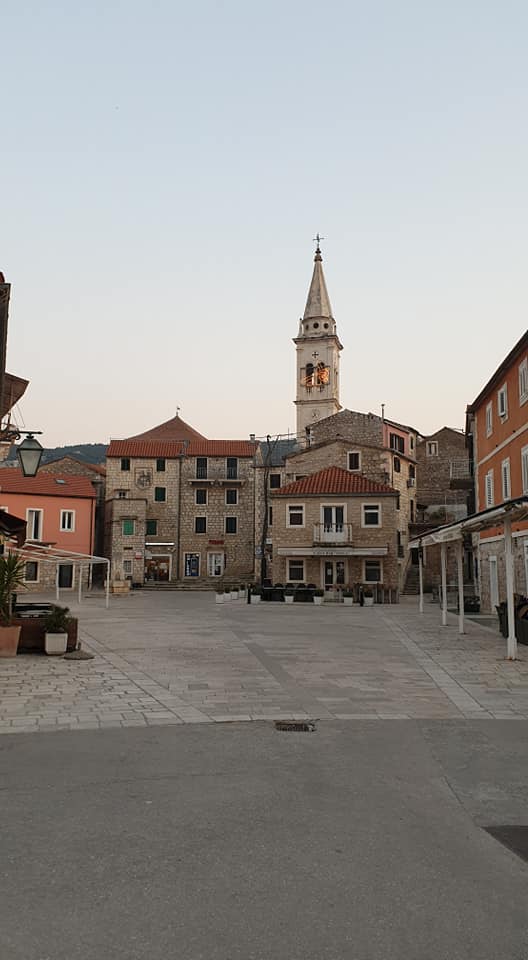
The main square of Jelsa tonight, which traditionally was the focal point of the procession, which has survived occupation by the Italian fascists in 1943, took place in the Sinai Desert in a refugee camp in Egypt in 1944, and took place in the godless Socialist years of Tito. You can learn more about that, and the procession in a previous article on TCN - 'Za Krizen' on Hvar Overcame Fascists, Tito, Sinai Desert, But Will It Beat Corona?
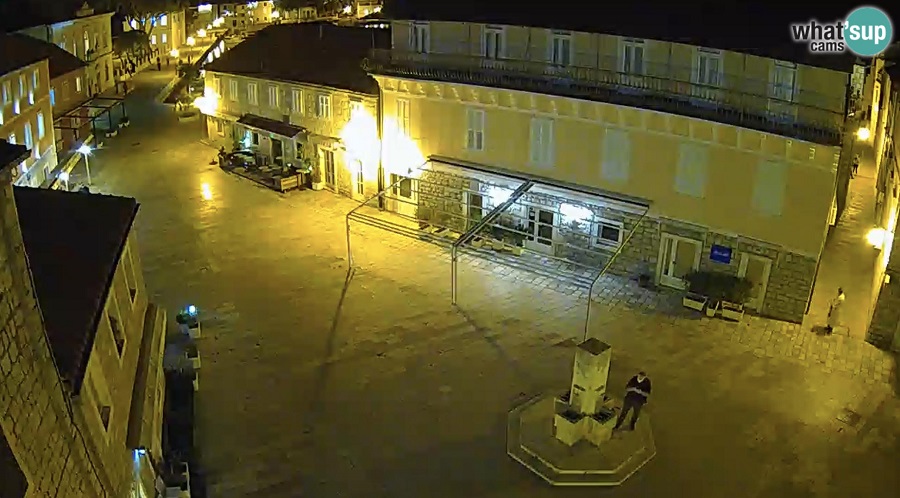
This is how Za Krizen looks in a normal year - the start of the Jelsa procession, one of six simultaneous processions which leave from Jelsa, Pitve, Vrisnik, Svirce, Vrbanj and Vrboska.
Clearly such a procession is NOT possible in the current climate. And this is NOT what Za Krizen 2020 will look like.
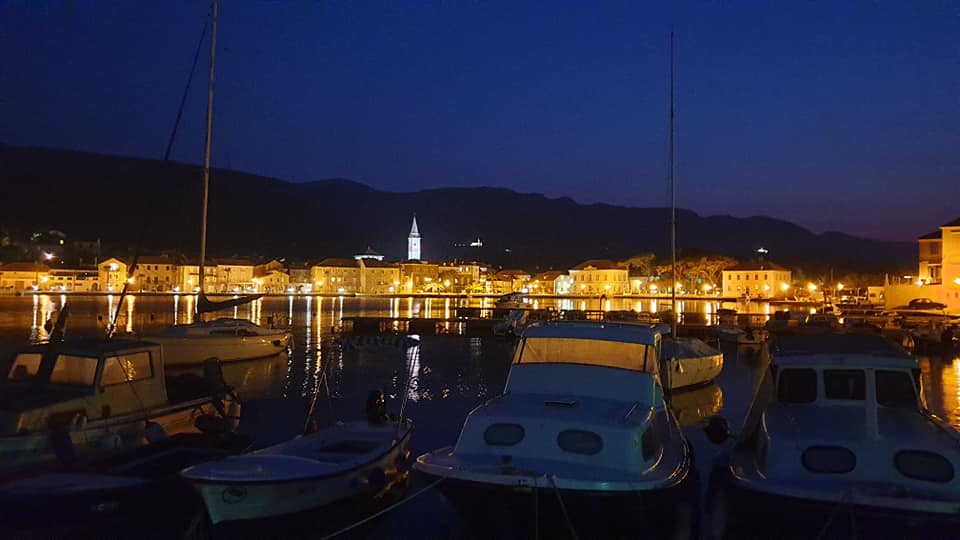
Jelsa tonight, as beautiful - and as empty - as I have ever seen it.
The sound of the church bells. They will fall silent tomorrow night until Sunday, as per the Holy Week tradition in Jelsa.
The discussion on whether or not to allow the procession to take place in some format has reached the very top echelons of the Croatian government. Health Minister Vili Beros, himself from Jelsa, stated that he was in favour of delaying the procession until September last week.
Clearly the idea of hundreds of people taking part was out of the question. Discussions ensued, and one suggestion was that each procession would be reduced to just five people - the crossbearer and four acolytes, a far cry from the 20 or so acolytes and the hundreds or thousands of pilgrims who walk through the night.
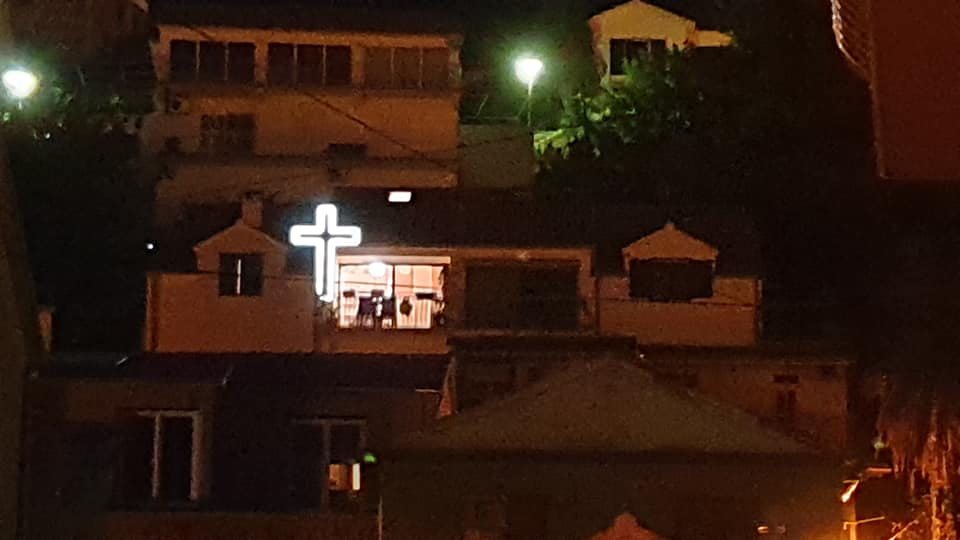
(A cross burns brightly outside the home of the Jelsa crossbearer, as per tradition)
My understanding is that the crossbearers asked for more acolytes to help them through the long night, and a decision was taken which involved PM Plenkovic (himself a Hvar man, who took part in Za Krizen back in 2017, as reported by TCN).
The final decision is that each procession will be allowed 15 participants (slightly more than the 12 allowed by the Italians in 1943), with five more singers following by car. Social distancing rules will be enforced.
And - and this will be VERY important to the millions of devout self-isolating Croatian Catholics here and in the diaspora - parts of Za Krizen 2020 will be available live from Jelsa, on the TCN Facebook page from 21:30 tomorrow night. At an incredibly important time of year for Croatians - Easter - the chance to see this religious tradition live from Hvar will no doubt give fortitude to many.
If all goes well, TCN will have a live feed from both the Jelsa church and the Jelsa main square from 21:30 tomorrow night until 08:00 on the morning of Good Friday. You can like the TCN Facebook page here, where the feed will appear.
I called the head of the Jelsa Civil Protection Headquarters today, and thereafter the head of Hvar police. Very productive discussions, in which I explained my socially distanced media coverage plans for tomorrow night. Both seemed fine but suggested that I request clearance from Jelsa Mayor Niksa Peronja. Mayor Peronja has just replied that I have clearance to report, so I will do the best I can to capture as much as I can of this tradition which means so much to the people of Hvar.
Last year, I managed to capture all six processions through the night.
I don't expect that level of access this year, but I will report back with the best I can do from a safe distance.
We will post the livestream link on TCN FB tomorrow night at 21:00.
And if you are wondering why Za Krizen 2020 is such a big deal, this is one of my favourite videos ever about Hvar traditions, which explains it all from the point of view of a crossbearer.
Croatia to Conduct Serological Survey on Asymptomatic Coronavirus Cases
ZAGREB, April 8, 2020 - The head of the Croatian Institute of Public Health, Krunoslav Capak said on Wednesday that the institute will perform a serological survey to determine a portion of asymptomatic patients among Croatians infected with coronavirus.
He underlined that it would be a sample survey and it would not be conducted throughout the entire population.
Currently, several possible platforms for the survey are being taken into consideration, he said at a news conference by the national COVID-19 crisis management team.
Serological surveys are often used by epidemiologists to determine the prevalence of a disease in a population. These surveys are sometimes performed at random, anonymous sampling from samples taken for other medical tests or to assess the prevalence of antibodies of a specific organism or protective titre of antibodies in a population.
Capak said that the situation was under control in the Dalmatian town of Knin where there were nine positive cases, including two patients in the local hospital. Due to these developments, 25 health workers in that town have been placed in self-isolation and the hospital is being disinfected.
He said that the situation was also being addressed in the Stubičke Toplice Special Hospital where four patients and two nurses had tested positive for the virus.
The head of Zagreb's Fran Mihaljević Hospital for Infectious Diseases, Alemka Markotić, said that two of the hospital's staff had tested positive for coronavirus, and one of them was a nurse and the other a non-medical worker. Consequently, eight doctors, 39 nurses and 11 non-medical workers have to self-isolate.
There have been 61 new cases of COVID-19 in Croatia in the past 24 hours, 12 persons have recovered and one patient in a Split hospital died due to the infection, Croatia's COVID-19 crisis management team said at a news conference on Wednesday afternoon.
The number of COVID-19 positive cases since the start of the outbreak on 25 February has risen to 1,343.
Doctor Maja Grba-Bujević informed that currently there were 359 patients in hospitals, including 36 on ventilators.
Since the outbreak of the infection, 179 Croatians have recovered from the disease.
More coronavirus news can be found in the Lifestyle section.

